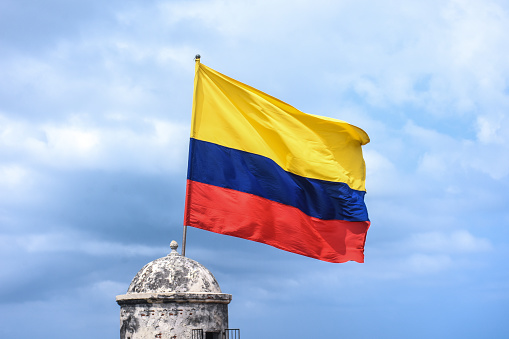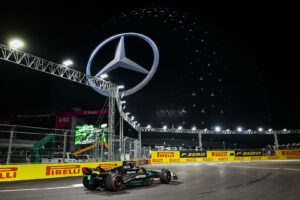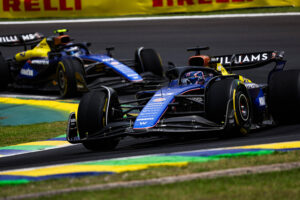Colombia has become the latest country interested in joining the ever-expanding Formula 1 calendar in 2024/5 on a 10-year contract.
Following the announcement of the 2023 F1 schedule, FIA President Mohammed Ben Sulayem claimed that the calendar’s expansion to a record-breaking 24 races reflects the series’ growing popularity and fanbase around the world. He stated, “The addition of new venues and the retention of traditional events underlines the FIA’s sound stewardship of the sport.” The 2023 schedule will add two more events including the Las Vegas Grand Prix making its debut under the lights.
Introducing the 2023 F1 Calendar 👀
Get set for a record-breaking 24 races next season!#F1 pic.twitter.com/t6Jl521H1G
— Formula 1 (@F1) September 20, 2022
Colombia Grand Prix
Brazil has been the sole South American country to host Formula 1 since Argentina’s last Grand Prix in the 1990s. However, if Colombia is given the go-ahead, F1 would be set for two trips per season to South America for 10 years starting in 2024 or 2025.
In an interview with Blu Radio, Barranquilla city’s mayor, Jaime Pumarejo, said that the process for adding Colombia to the F1 calendar is “progressing very well.” He also mentioned that Formula 1 representatives have already visited the city and were impressed by what they saw.
Furthermore, Pumarejo promised that this Grand Prix would stand out from others because it would place a strong emphasis on the environment and impose no financial burden on the city or the country.
“The climate change effort we are making in the city would be one of the most important points of this Grand Prix. The prize would be self-sustaining, that is, the development of the race would not cost the country and the city, but, on the contrary, would bring employment, tourism and recognition.”
Finally, he said that the event would be called “Caribbean Grand Prix” – as Barranquilla city’s location is on the Caribbean Sea and that there will be two semi-urban street routes, both of which have been approved.
“In one of the routes the river is the protagonist, in another it is not, but both are in the metropolitan area of Barranquilla. We hope that, if everything that is missing comes to fruition, we could be talking about 2024 or 2025 and it would be signed for 10 years.”
“It would be the event with the highest turnover in Colombia. A Formula 1 Grand Prix has a turnover in two or three days of 2.5 times what Corferias [a convention center in Bogotá] has in the whole year.”
The Future of Formula 1
Formula 1 CEO Stefano Domenicali has previously hinted at a future F1 calendar of up to 30 races per year “due to the level of interest in the sport.” As soon as the news broke on Twitter, many fans expressed their frustration saying that so many Grands Prix would be extremely exhausting for the teams, drivers, and everyone working in Formula 1.
30 races a season is way over the limit. What about all the journalists, the mechanics, the strategists, everyone that works in F1 that travels to and from the races. At the end of the day we’re human and would lead to burnout.
— Ben Fuller (@benfullerf1) March 23, 2022
However, the current Concorde Agreement between the F1 teams and the FIA, which was signed in 2020 and is valid through 2025, limits the number of races per year to 25. The sport would reach that ceiling if the Colombia race were added within the suggested timeframe.
Domenicali has warned historic circuits that their spots on the F1 calendar are not guaranteed. Some current races, such as Spa, may lose their spots in favor of new locations like Colombia, Las Vegas, and South Africa. “The process has actually already started,” Domenicali told Motorsport’s Italian website.
“There are some promoters who have expiring agreements, and probably some of the current Grands Prix will no longer be part of the calendar. Others will remain but in a different form, such as rotating between different tracks.
“Soon the choices we are making will be announced, and you can expect some new Grands Prix. However, it is still not easy to plan everything in advance.”
Though it is not confirmed just yet, the 30-race calendar has already divided fans. Would it be a blessing or a curse for the sport?






